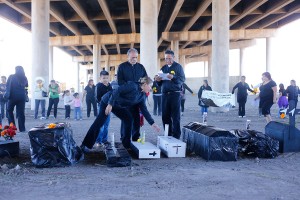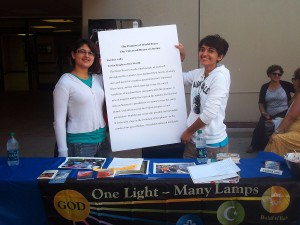Day of the Dead procession remembers recent casualties along the U.S.-Mexico border
|
EL PASO – The Border Network for Human Rights held its eighth annual Day of the Dead Procession along the Cesar E. Chavez border highway on Nov. 1 to remember those who have perished while trying to enter the United States and show their support for comprehensive Immigration Reform. “As the Day of the Dead looms, we take this day to remember the immigrants who unfortunately lost their lives while crossing the border,” said BNHR director Fernando Garcia. “We should never forget them; we will be here honoring them every year because if we forget about them their deaths will be in vain and more people will lose their life.”
The non-profit BNHR, along with nearly 150 El Pasoans of all ages, marched from Bowie High School through Central El Paso and along the border highway that separates El Paso from Ciudad Juarez. Participants carried coffins made out of cardboard, religious crosses, lit candles and banners to express their support for immigration reform. Although the U.S. Senate passed a comprehensive immigration reform bill that grants a path to citizenship to undocumented residents last summer, the bill is currently stalled in the House of Representatives and unlikely to be discussed this year.

